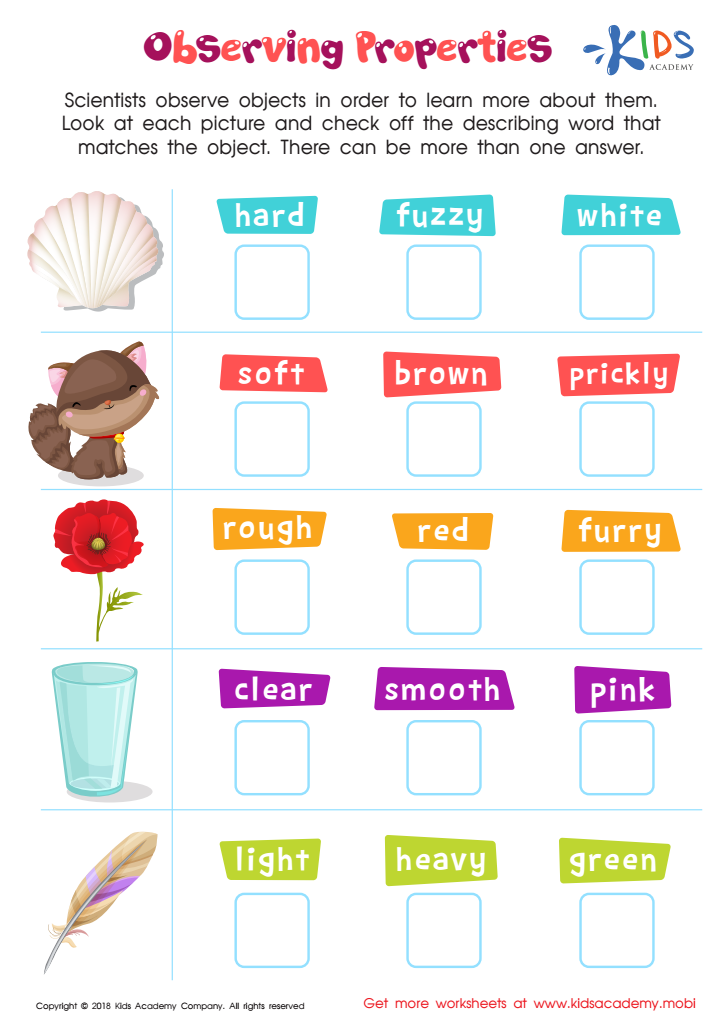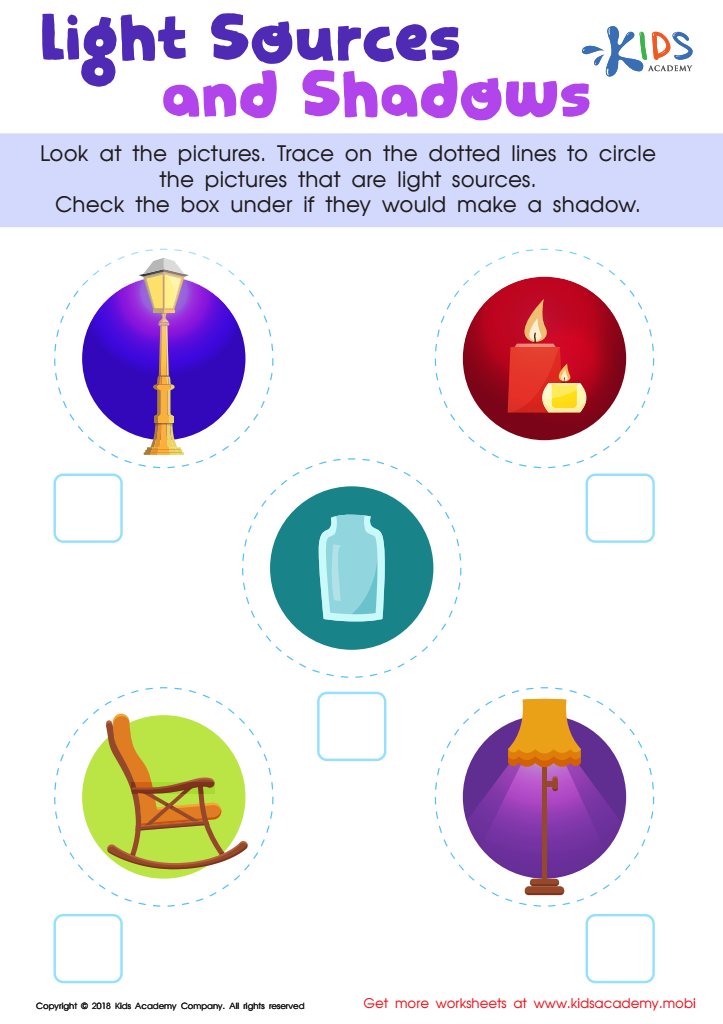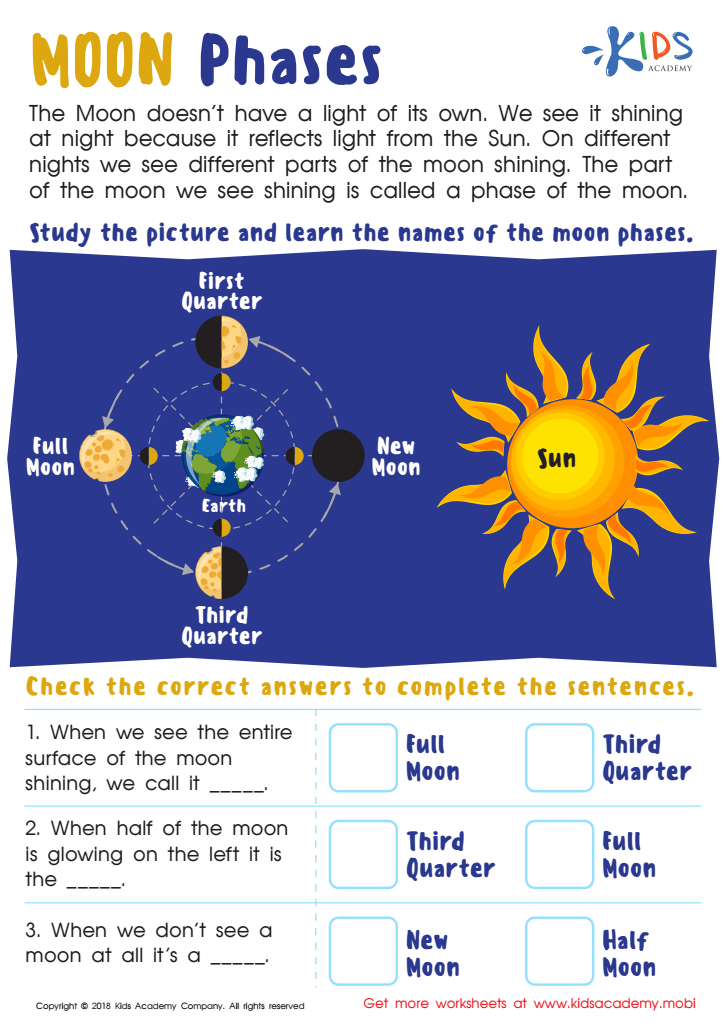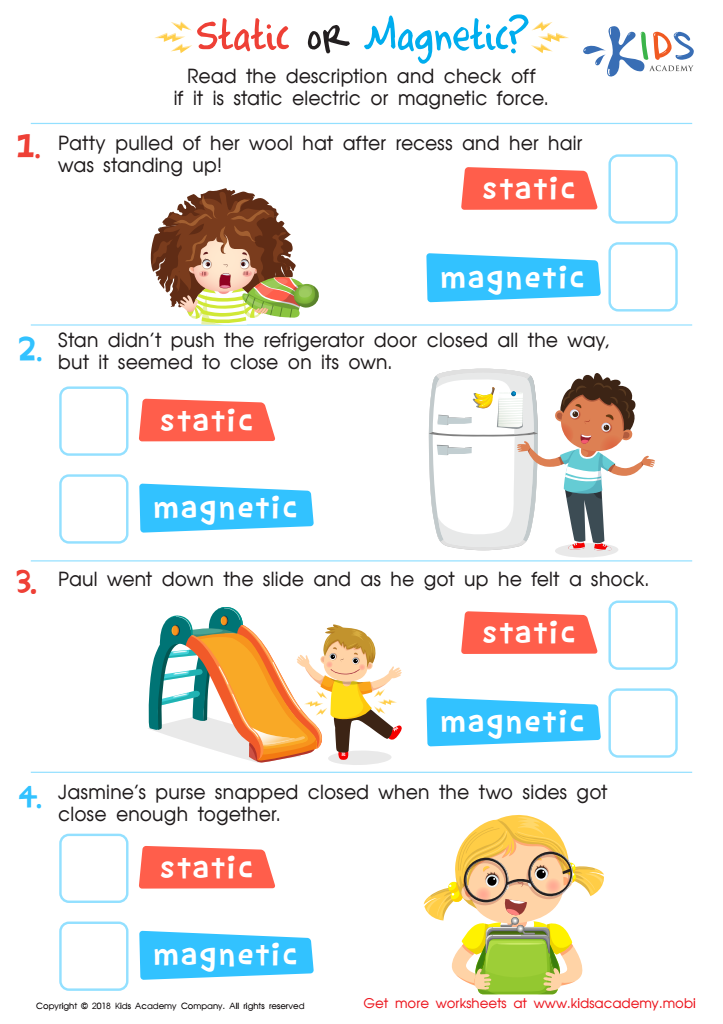Observational skills Physical Science Worksheets for Ages 3-9
4 filtered results
-
From - To
Our Observational Skills Physical Science Worksheets for Ages 3-9 are specially designed to nurture young minds and spark curiosity. Children will explore the fundamentals of physical science while engaging in fun and interactive activities that enhance their observational skills. These worksheets encourage kids to notice details, make predictions, and draw conclusions about the world around them. Ideal for both home and classroom settings, our resources help develop critical thinking and scientific inquiry from an early age. Empower your child to become a keen observer and an enthusiastic learner with our expertly crafted worksheets.


Observing Properties Worksheet


Light Sources and Shadows Worksheet


Moon Phases Worksheet


Static or Magnetic Printable Worksheet
Observational skills in physical science for children aged 3-9 are crucial for their cognitive development and understanding of the world. Encouraging observational skills at this stage helps children become keen and curious learners. By teaching them to notice subtle details, measure changes, record findings, and draw conclusions, we are laying the foundation for scientific thinking. These activities enhance critical thinking, problem-solving, and understanding of cause and effect, which are essential skills not just in science, but in everyday life.
Moreover, early engagement in physical science fosters a natural curiosity in young minds. By exploring concepts such as gravity, magnetism, and the properties of materials, children develop a deeper appreciation for how their world operates. This intrinsic motivation can encourage a lifelong love of learning and drive for discovery.
Additionally, as children make observations and discuss what they see, their language and communication skills benefit greatly. Describing objects, processes, and outcomes helps build a rich vocabulary and the ability to articulate thoughts clearly.
Involvement in physical science at an early age also promotes social skills like collaboration and sharing ideas. As children work together or learn from adults, they understand perspectives different from their own. Therefore, focusing on observational skills in physical science equips children with essential tools for holistic growth.
 Assign to My Students
Assign to My Students







.jpg)










